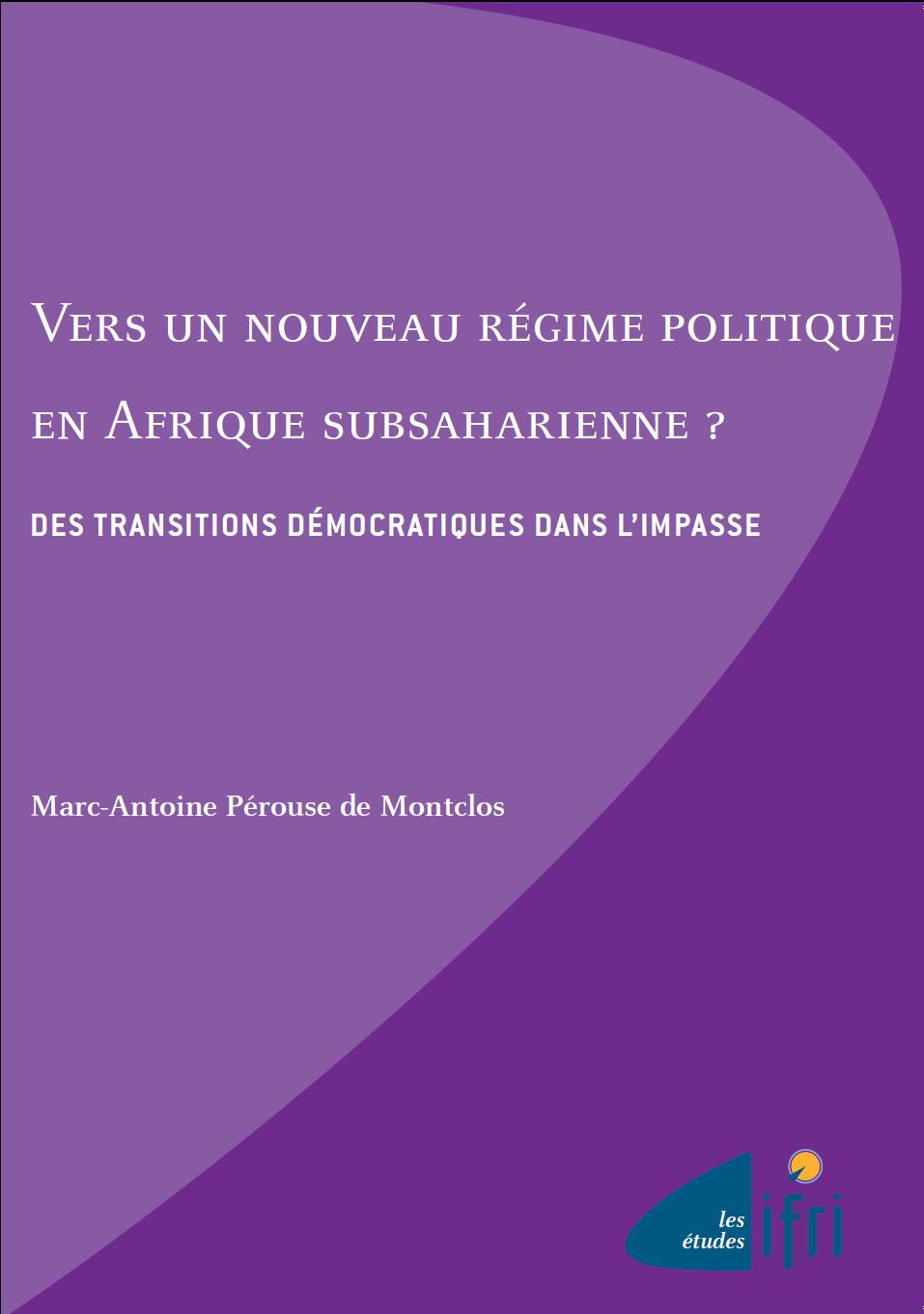Towards A New Type of Regime In Sub-Saharan Africa: Democratic Transitions but no Democracy

Sub-Saharan African hopes of democratization raised by the end of the cold war and the decline in the number of single party states are giving way to disillusionment. Today, even countries such as Senegal and South Africa, reputed for their democratic nature, are threatening to veer towards authoritarianism.
But recent events in Mauritania, Niger and Guinea-Conakry should not lead to an error of interpretation. These countries are not representative cross-section. At the continental level, the heavy trend notices a decrease in the number of successful or attempted coup d'état, even in such countries as the Comoros or Nigeria, where they were a "tradition" and figures have reached world record levels. As we will see in the first part of this paper, the continent’s political track record is not completely negative; most Africans are now ruled by regimes that are neither military juntas nor parliamentary democracies. Most of the African states maneuver in a dreary zone between peace and war, where populations face daily insecurity. Some American researchers name these more or less failed states as “anocracies”, characterized by:
- Non-existent or virtual central authority (Somalia, Central African Republic),
- Governments still threaten that civil war could resume (Sierra Leone, Liberia, Burundi and even Angola),
- High levels of violence and corruption which impoverish public services, fuel a feeling of frustration and increase social inequalities when they do not allow a better share from the revenues of the natural resources (Nigeria, both Congo),
- Contested and badly legitimized powers (Zimbabwe), sometimes with non-resolved internal tensions (Cameroon, Ethiopia),
- Recurring regional tensions and parliamentary systems that do not work properly due to massive electoral fraud and candidates picked by processes of co-option (Nigeria, Ethiopia, Rwanda)
Nigeria is a classic example of such a society and the subject of the second part of this paper. The most populated country in Africa, Nigeria lives off its petrol; there is fierce competition with no holds are barred over the spoils. The country’s elections are a sort of masquerade, ineffectually hiding the systems of government and “godfatherism” that in reality are based on new politicians being co-opted into the ruling elite. Nigerians aren’t stupid however, and no longer believe in the benefits of democracy, ironically referred to as “democrazy”.
The failure of political reforms in Africa is also an indictment of the international community’s limited ability to influence events in the region, particularly for its help with “good governance”. Political models exported by the West have revealed themselves to not always be up to the task of democratizing Africa. The third part of this paper will closely analyze the international community’s preconceptions in this area: an excessive focus on the moment of elections to the detriment of day-to-day political behavior; illusions about correlations between development, democratization, conflict prevention and political stability; misleading beliefs in the merits of NGOs and “civil” society, etc. Under the pretext of improving the governance of countries in difficulty, western donors have in fact tried to bypass corrupt administrations, risking “emptying” of public authorities of their substance. Nowadays, development policies are changing and we are bearing witness to the return to favor of the African state. For better or for worse: all too often international aid ends up propping up presidential power cliques and poorly legitimized regimes.
Marc-Antoine Pérouse de Montclos is a Senior Researcher at IRD (Development Research Institute, France) and Doctor in Political Sciences from Political Studies School of Paris (IEP Paris) His area of expertise concerns armed conflicts in Sub-Saharan Africa. He lived many years in Nigeria, South Africa and Kenya and continues field researches in Africa. He wrote many books and articles, notably on Nigeria, South Africa, Somalia and Humanitarian aid.
Download the full analysis
This page contains only a summary of our work. If you would like to have access to all the information from our research on the subject, you can download the full version in PDF format.
Towards A New Type of Regime In Sub-Saharan Africa: Democratic Transitions but no Democracy





